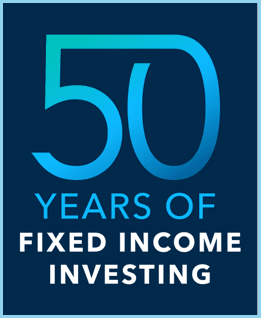Long-Term Investing
Capital IdeasTM
Investment insights from Capital Group
Fixed Income
High inflation, geopolitical tensions, collapsing banks and ongoing concerns about recession have combined to create a highly uncertain environment for investors — and in the face of all this, it is no surprise some may want to opt out of markets altogether.
Sitting on the sidelines can feel like the safer option, particularly when “cash” is offering yields not seen in 20 years. But as the chart shows, yields on cash have tended to drop off very quickly following the end of a rate hiking cycle. Over the last five cycles, the JPMorgan Cash Index USD three-month yield was an average of 2.2% lower 18 months after the final rate rise from the US Federal Reserve. This is because central banks typically step in with rate cuts to dampen any economic slowdown.
Average change in yield on ‘cash’ after the peak in the Fed Funds Rate in previous hiking cycles
.png)
Data as at 30 July 2023. Sources: Bloomberg, US Federal Reserve. Chart represents the average decline in the JPMorgan Cash Index USD three-month yield starting in the month of the last Fed rate hike in the last five transition cycles from 1989 to 2018
Our analysis suggests that, over a multi-year horizon, investors are better served by a "fight" than "flight" response and fixed income is the perfect tool for that fight. Indeed, it is in recessions when bonds shine: at such times, fixed income benefits from central banks cutting rates and can provide a powerful defensive hedge within a broader portfolio.
Historical analysis can provide useful guidance on how bonds and cash perform through different parts of the market cycle. As 2022 illustrated, a rising rate environment is bad for bonds; investors were clearly much better off in cash. But as rate cycles around the world move toward their peak, are we at an inflection point where it makes sense to shift back into fixed income? History would suggest the answer is yes.

Our latest insights
-
-
-
-
European Equity
-
Economic Indicators
RELATED INSIGHTS
Hear from our investment team.
Sign up now to get industry-leading insights and timely articles delivered to your inbox.
Past results are not predictive of results in future periods. It is not possible to invest directly in an index, which is unmanaged. The value of investments and income from them can go down as well as up and you may lose some or all of your initial investment. This information is not intended to provide investment, tax or other advice, or to be a solicitation to buy or sell any securities.
Statements attributed to an individual represent the opinions of that individual as of the date published and do not necessarily reflect the opinions of Capital Group or its affiliates. All information is as at the date indicated unless otherwise stated. Some information may have been obtained from third parties, and as such the reliability of that information is not guaranteed.
Capital Group manages equity assets through three investment groups. These groups make investment and proxy voting decisions independently. Fixed income investment professionals provide fixed income research and investment management across the Capital organisation; however, for securities with equity characteristics, they act solely on behalf of one of the three equity investment groups.
 Haran Karunakaran
Haran Karunakaran